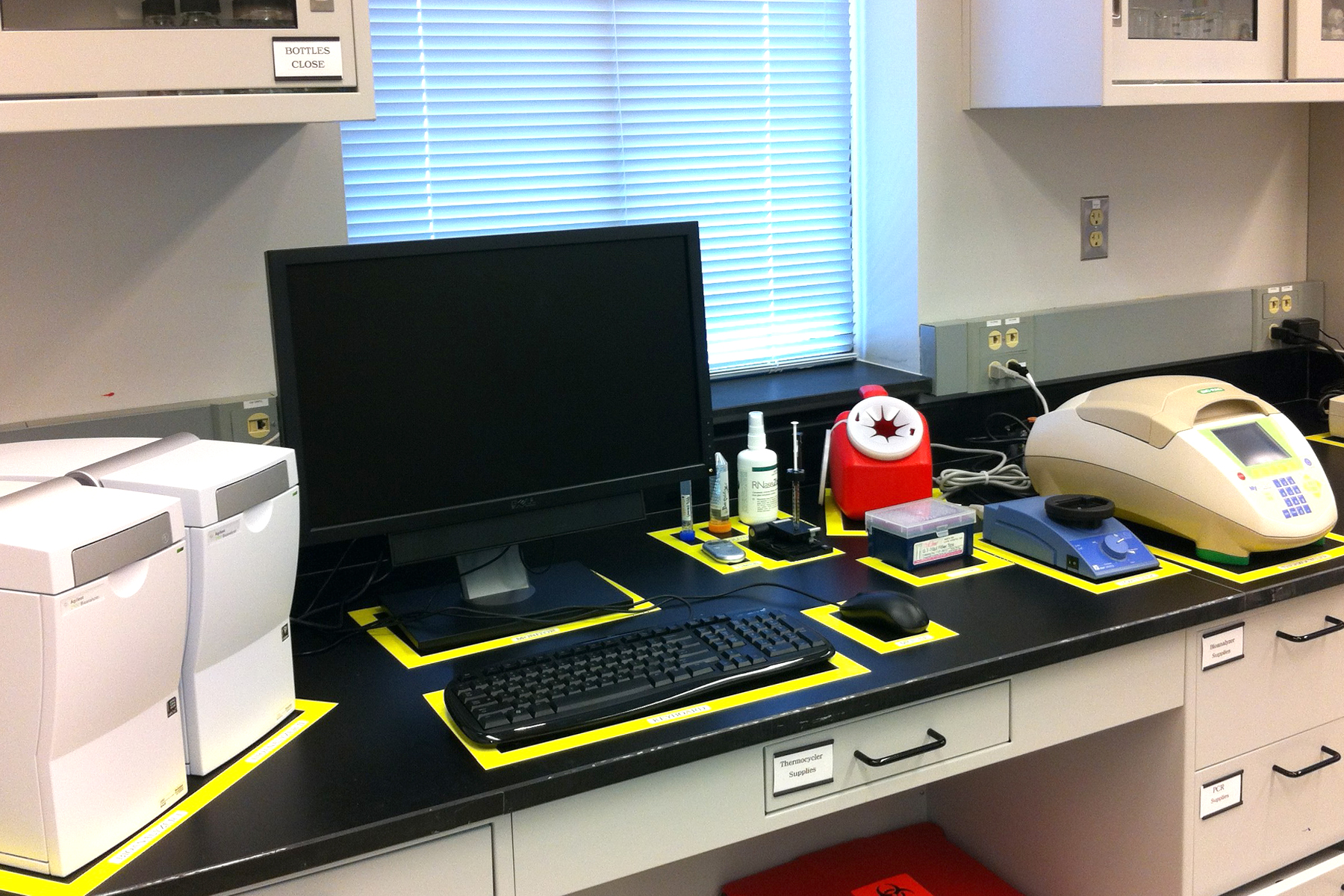National Science Foundation award to help improve the efficiency of DNA fabrication, creating educational opportunities and jobs

The National Science Foundation (NSF) has awarded a three-year $999,531 grant to Virginia Tech to optimize the laboratory processes used to make custom DNA molecules with the tools and methods of industrial engineering.
The transdisciplinary team led by Jean Peccoud, associate professor at Virginia Bioinformatics Institute, also includes Kimberly Ellis and Jaime Camelio, associate professors in the Grado Department of Industrial and Systems Engineering in the College of Engineering.
The concept of DNA fabrication has its roots in synthetic biology, an emerging area of biological research that applies engineering methods to design, build, and characterize artificial biological systems that meet user-defined specifications. DNA fabrication combines natural and chemically synthesized DNA fragments together in order to make larger DNA molecules that conform to computer-designed sequences.
DNA fabrication includes gene synthesis, the process of assembling chemically synthesized oligonucleotides into double-stranded DNA fragments. It also includes more traditional activities such as the development of mutant collections or libraries of plasmid expressing families of proteins. In this broad perspective, most biologists practice DNA fabrication, although they are more likely to call it molecular biology or genetic engineering.
“The reward of this project is a much-needed increase in the productivity of the life science research enterprise. Our national research and development infrastructure needs to be more fiscally responsible in these times of constrained budgets. In order to enhance U.S. competitiveness, it is necessary to find ways of producing more data, more discoveries, and more applications with stable or shrinking resources,” said Peccoud. “We are proposing a change of paradigm in laboratory management that will enable American biotechnology companies to create manufacturing jobs for people who did not have a chance to receive a college education.”
DNA fabrication projects rely on low-cost instruments and laboratory infrastructure commonly available to life scientists. Unfortunately, the lack of a suitable framework to analyze DNA fabrication now limits its effectiveness. “The process of assembling a DNA molecule corresponding to a user-defined sequence is similar to the process of making a mechanical part that requires casting, turning, and milling operations based on CAD drawings provided by a customer,” said Ellis, site director for the Center for Excellence in Logistics and Distribution. “DNA fabrication processes are similar to complex job shops producing customized products for specific customers in a variety of production volumes.”
“This project will provide unique cross-training opportunities in biology and engineering for undergraduate students, graduate students, and post-doctoral fellows,” said Camelio, director of the Virginia Tech Graduate Program in Industrial and Systems Engineering. “It will give industrial engineering students an opportunity to explore a new frontier. Life science students will gain exposure to management techniques that will help them streamline the operation of their labs in academia or industry after they graduate.”
This project is funded through the CREATIV grant award mechanism, a part of the National Science Foundation INSPIRE initiative. CREATIV grants are reviewed internally by NSF. They propose potentially transformative high-impact high-reward projects that help to break down some disciplinary barriers that may exist within NSF.
Dedicated to its motto, Ut Prosim (That I May Serve), Virginia Tech takes a hands-on, engaging approach to education, preparing scholars to be leaders in their fields and communities. As the commonwealth’s most comprehensive university and its leading research institution, Virginia Tech offers 240 undergraduate and graduate degree programs to more than 31,000 students and manages a research portfolio of $513 million. The university fulfills its land-grant mission of transforming knowledge to practice through technological leadership and by fueling economic growth and job creation locally, regionally, and across Virginia.







